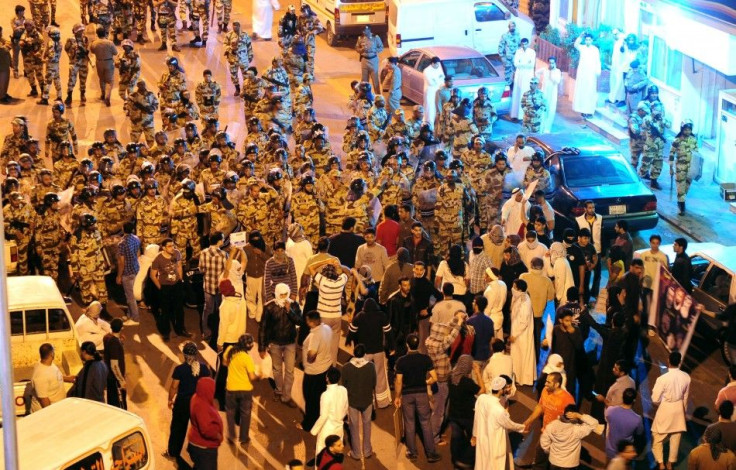Saudi Arabia fears protests, regional instability: IHS

Saudi Arabia will witness greater popular pressures and potential unrest in the long run, unless the kingdom deals with socio-economic and political challenges, a Middle East analyst has said.
... in the longer-term, it will be increasingly difficult to limit demands for both political and social reforms, which are likely to directly clash with the kingdom’s conservative, Wahhabist socio-political constitution, IHS Global Insight Middle East analyst Gala Riani wrote in a note on Monday.
In the aftermath of the fall of dictatorships in Tunisia and Egypt, the Middle East has seen a wave of popular uprisings. Violent protests took place in the Gulf Cooperation Council (GCC) countries of Bahrain and Oman as well, rattling the long-entrenched dynasties of the oil producing states of the region.
In Saudi Arabia too, protests took place in the oil-rich eastern province, where the majority of the country’s Shi’a population live. Saudi Arabia banned all public demonstrations in the country and vowed to use all forces to stop protesters from breaking public order, after a rare demonstration took place in the capital Riyadh last week.
“Regulations in the kingdom forbid categorically all sorts of demonstrations, marches and sit-ins...as they contradict Islamic Shari’a law and the values and traditions of Saudi society”, the government statement said.
Protests in the kingdom have been limited so far and there is relatively widespread legitimacy for the ruling al-Saud family, and as such there is not yet reason to worry about political instability, the analyst says.
However, Riani says much will depend on the state’s response to the budding protests. Riani says the Saudi regime has been on edge since the unrest broke out in Bahrain last month.For Saudi Arabia, Bahrain represents a major challenge: Saudi Arabia would probably go as far intervening militarily, in a worst-case scenario situation, if Bahrain’s stability comes under severe threat or if Shi’as look set to stage a revolution against the Khalifas.
The Saudi situation is much similar to that in Bahrain, were Shiites rose in rebellion against the Sunni-led monarchy, alleging discrimination and repression. The difference in Saudi Arabia is that, unlike in Bahrain Sunnis are a big majority.
The Saudi Shias say that they have been denied equal economic and employment opportunities and that they are suppressed and held in detentions without trial.
Saudi Arabia considers the two greatest threats against Bahrain’s stability as the empowerment of the country’s Shi’a majority population, and undue influence by Iran; the two issues are also interconnected, as both are seen as potentially challenging the Sunni monarchy and directly threatening to Saudi stability, says Riani.
Unrest in neighbouring countries is disconcerting for the Saudi leadership for many reasons, including fears that widespread unrest will spread to the kingdom, that the kingdom will be drawn into supporting regional states under popular pressure, and that the long-term regional dynamics may shift.
© Copyright IBTimes 2025. All rights reserved.





















